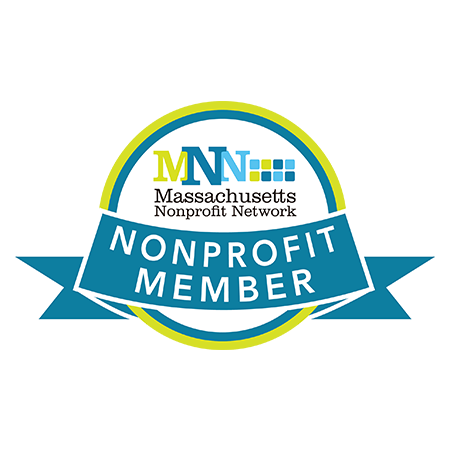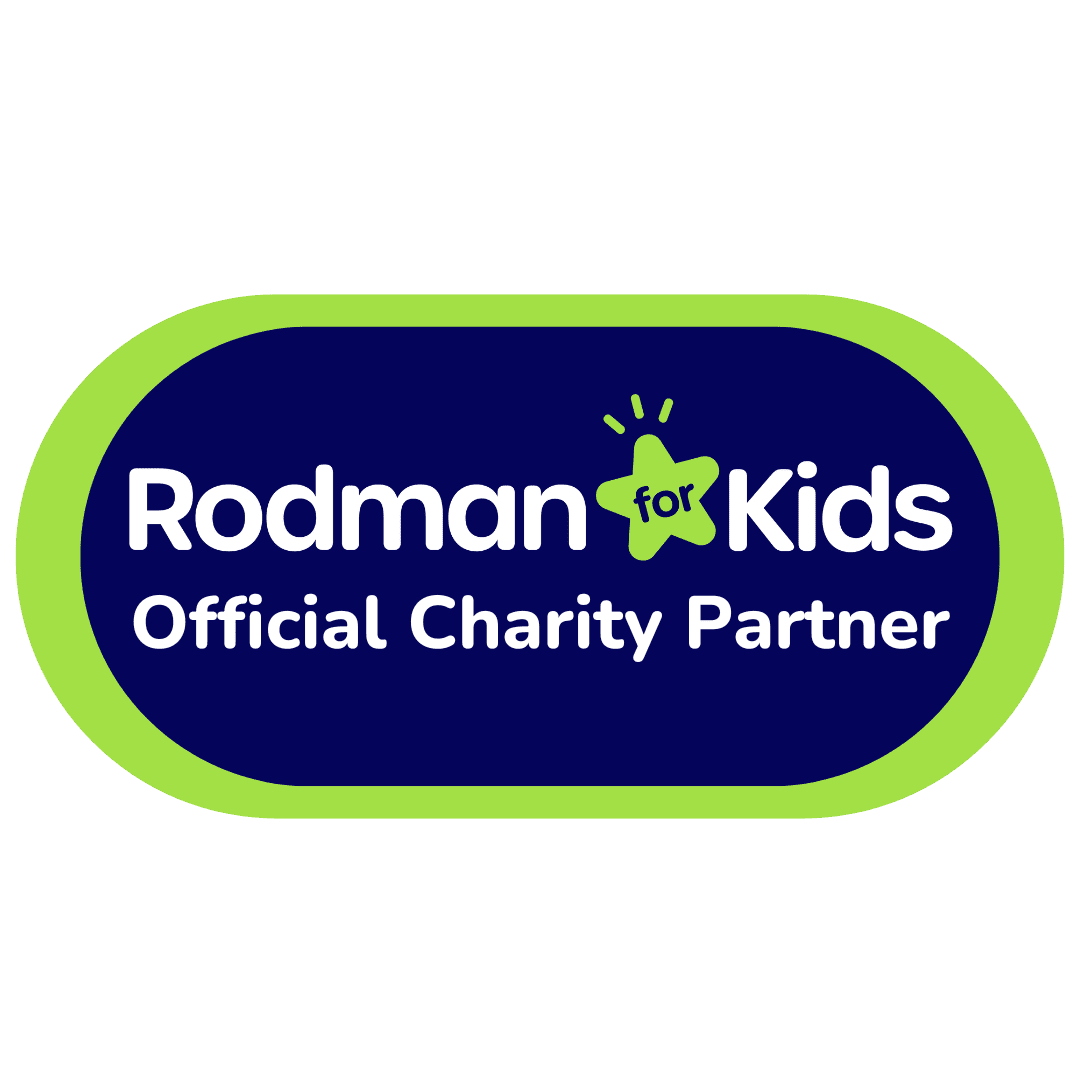- ELEMENTARY
PROGRAMS - Be the Spark!GRADES 3 + 4
- Ripple EffectGRADES 3 + 4 + 5
- Brightening DaysGRADES 4 + 5
Be the Spark
GRADES 3 + 4
In the ThinkGive® Be the Spark program, students discover their capacity to spark kindness all around them by taking positive actions to impact themselves and others. Lesson plans engage with visual, hands-on, and interactive activities and include opportunities for students to share, brainstorm, and reflect. Students are encouraged to take action between lessons, which they share on a spark-filled display.
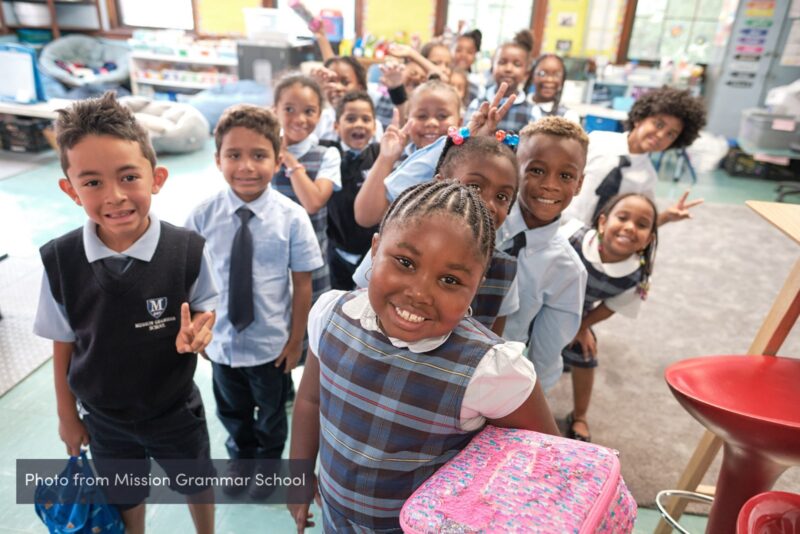
STUDENTS WILL EXAMINE
The many small ways to take action to impact themselves and others.
How they can bravely expand their comfort zone and affect those outside of their close circle of family and friends.
How can small actions impact their communities and the world?
PROGRAM LENGTH
12 lessons, 30-35 minutes each.
Modify and facilitate lessons according to your schedule and student needs.
SEL SKILLS PRACTICED
Self-awareness: Identifying emotions; self-care; self-efficacy; growth mindset
Self management: Managing emotions; self-motivation; goal-setting; organizational skills; personal and collective agency; initiative-taking
Social awareness: Perspective-taking; empathy; respecting others; showing concern for others’ feelings; gratitude
Relationship skills: Communication; social engagement; collaboration; relationship-building
Responsible decision-making: Curiosity and open-mindedness; ethical responsibility; evaluating personal, interpersonal, and community impact
ACADEMIC SKILLS PRACTICED
Engaging in discussions with diverse partners, expressing their ideas, and building on others.
Writing and verbally expressing opinions on topics, supporting a point of view with reasons.
Learning the meaning of general academic and domain-specific words and phrases.
Using knowledge of language and its conventions when writing, speaking, reading, or listening.
Ripple Effect
GRADES 3 + 4 + 5
In the ThinkGive® Ripple Effect program, students reflect on the impact of their personal and collective actions in rippling out into their communities. Lesson plans engage with visual, hands-on, and interactive activities, providing opportunities for students to share, brainstorm, and reflect. Between lessons, students are encouraged to act to impact themselves, others, and the environment.
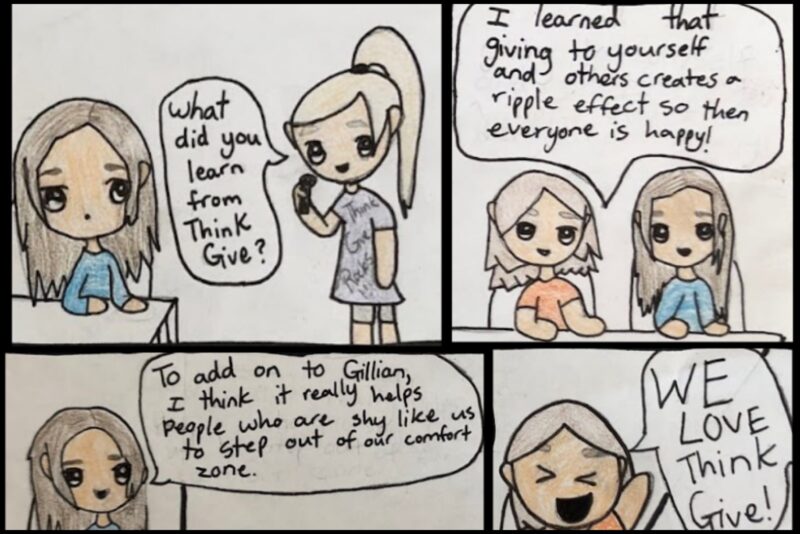
STUDENTS WILL EXAMINE
Small actions can have a profound impact, creating a ripple effect that spreads throughout communities.
The impact that others’ words and actions have on them.
They have many opportunities to impact others in their everyday interactions.
PROGRAM LENGTH
12 lessons, each 30-35 minutes in length.
Modify and facilitate lessons to suit your schedule and student needs.
SEL SKILLS PRACTICED
Self-awareness: Integrating personal and social identities; identifying emotions; self-care; self-efficacy; growth mindset; developing a sense of purpose
Self management: Managing emotions; self-motivation; goal-setting; organizational skills; personal and collective agency; initiative-taking
Social awareness: Perspective-taking; empathy; respecting others; showing concern for others’ feelings; gratitude; identifying diverse social norms, including unjust ones
Relationship skills: Communication; social engagement; collaboration; relationship-building; cultural competency; standing up for the rights of others, including the environment
Responsible decision-making: Curiosity and open-mindedness; ethical responsibility; problem identification; evaluating personal, interpersonal, and community impact
ACADEMIC SKILLS PRACTICED
Engaging in discussions with diverse partners, expressing their ideas, and building on others.
Posing and responding to questions to clarify or follow up on information.
Reviewing key ideas expressed and explaining their ideas/understanding in light of the discussion.
Reporting on a topic or text, telling a story, or recounting an experience in an organized way, using appropriate facts and relevant details to support ideas or themes; speaking clearly at an understandable pace.
Writing and verbally expressing opinions on topics, supporting a point of view with reasons.
Learning the meaning of general academic and domain-specific words and phrases.
Using knowledge of language and its conventions when writing, speaking, reading, or listening.
Brightening Days
GRADES 4 + 5
In the ThinkGive® Brightening Days program, students discover that they have the power to take empathetic actions to brighten their days and the days of others. There is an increased focus on bravery when taking action in their communities. Lesson plans engage with visual and interactive activities, providing opportunities for students to share, brainstorm, and reflect. Between lessons, students are encouraged to take actions to impact themselves, others, their communities, and the environment.
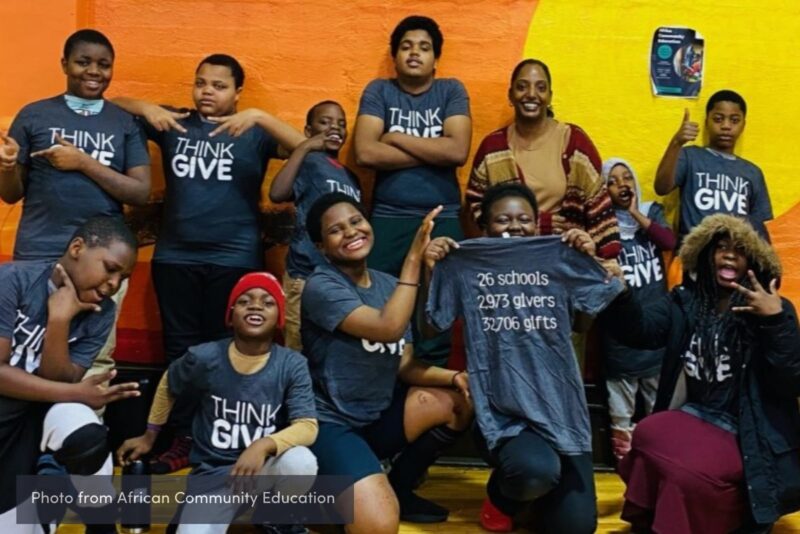
STUDENTS WILL EXAMINE
The importance of self-awareness in practicing self-care in challenging moments.
How people need different kinds of support.
How their presence alone can be powerful in brightening a person’s day.
PROGRAM LENGTH
12-16 lessons, 30-35 minutes each.
Modify and facilitate lessons according to your schedule and student needs.
SEL SKILLS PRACTICED
Self-awareness: Integrating personal and social identities; identifying emotions; self-care; self-efficacy; growth mindset; developing a sense of purpose
Self management: Managing emotions; self-discipline; self-motivation; goal-setting; organizational skills; personal and collective agency; initiative-taking
Social awareness: Perspective-taking; empathy; respecting others; showing concern for others’ feelings; gratitude; identifying diverse social norms, including unjust ones
Relationship skills: Communication; social engagement; collaboration; relationship-building; cultural competency; leadership; standing up for the rights of others, including the environment
Responsible decision-making: Curiosity and open-mindedness; ethical responsibility; problem identification; evaluating personal, interpersonal, and community impact
ACADEMIC SKILLS PRACTICED
Engaging in discussions with diverse partners, expressing their ideas, and building on others.
Posing and responding to questions to clarify or follow up on information.
Reviewing key ideas expressed and explaining their ideas/understanding in light of the discussion.
Reporting on a topic or text, telling a story, or recounting an experience in an organized way, using appropriate facts and relevant details to support ideas or themes; speaking clearly at an understandable pace.
Writing and verbally expressing opinions on topics, supporting a point of view with reasons.
Learning the meaning of general academic and domain-specific words and phrases.
Using knowledge of language and its conventions when writing, speaking, reading, or listening.
